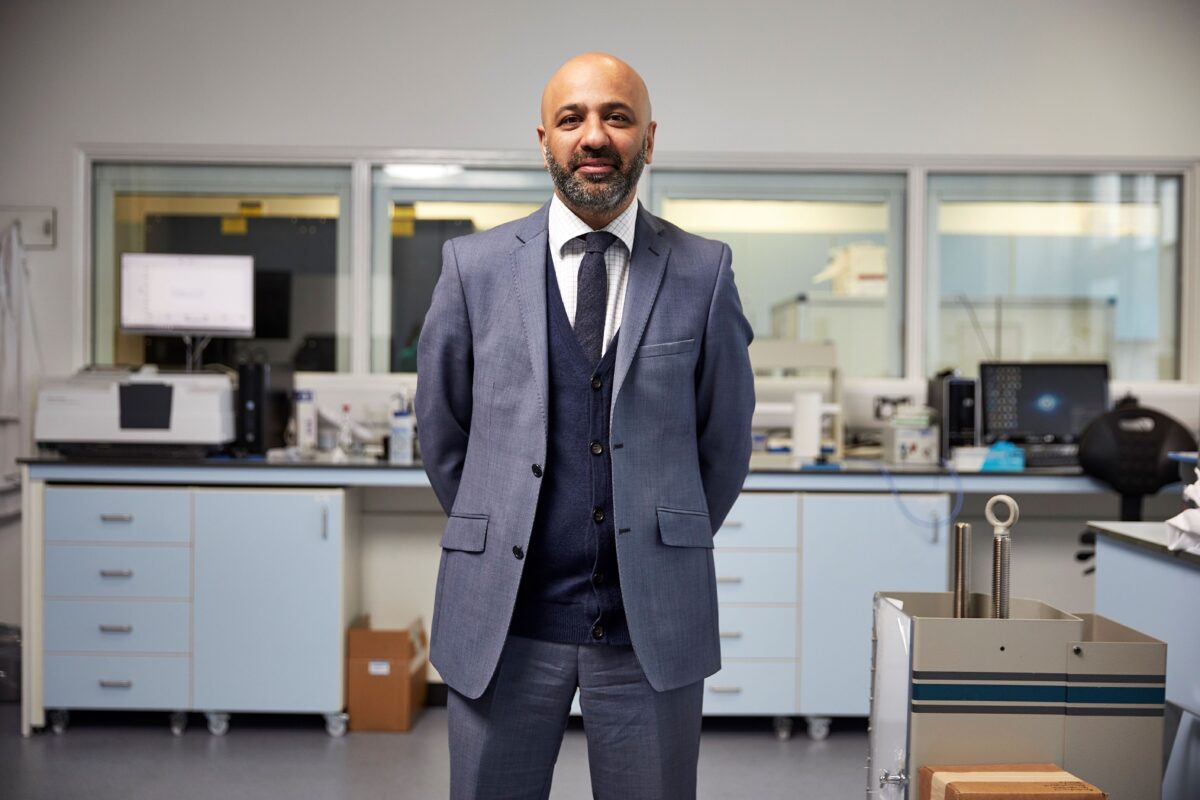Skills Gap is Biggest Barrier to UK Hydrogen Opportunity says Specialist

With a career spanning more than 22 years in renewables, Director of Manchester Fuel Cell Innovation Centre at Manchester Metropolitan University(@ManMetUni) and Specialist Advisor to Hydrogen Safe, Amer Gaffar, is no stranger to the challenges that come with the transition to sustainable ways of working.
Recognising the massive potential that hydrogen could bring to UK industry as companies work towards achieving net zero, Amer explains that unless the country puts in place the provision to develop skilled resource now, it will be less a case of chicken and egg and more a risk of no chicken and no egg.
Amer Gaffar comments:
“Hydrogen can only become part of a sustainable solution for the energy transition if we have people to deliver it alongside infrastructure. The urgent nature for significant UK skills and training in hydrogen is referenced in multiple reports through Government and industry groups.
“As Director of the Manchester Fuel Cell Innovation Centre at Manchester Metropolitan University, I work with swathes of industry leaders and SME’s. All are aware of the people risk but are hesitant to react until others do the same or more commitment to policy occurs.
“In reality, the commitment in policy and funding is already in motion for UK hydrogen to prosper. We just need to identify the specific roles and skills that will be required and match them with the education system that is in place, highlighting any gaps that must be filled to support a pipeline of current and future workers for the industry.
“We need to link the skills ambition and opportunity to every infrastructure project we announce to ensure we account for how many people we will need to not only deliver the project but service it for years to come.”
While the ambition for UK hydrogen is evident, with suggestions the global sector already has a $570 billion investment pipeline and by 2050 will become a $8trn opportunity, until the responsibility for skills is accepted, the ability to implement change will remain at a standstill.
Amer continues:
“I have seen the hydrogen market evolve at pace over the last decade and schools, the FE and HEI sector need to work together to tackle our people challenge to allow us to meet with the requirements of the sector.
“In fact, many are exploring and already delivering relevant courses in partnership with specialist training providers such as Hydrogen Safe, however the ambition relative to the UK hydrogen opportunity will not allow us to deliver to scale as is set out in the UK Hydrogen Strategy, which was announced in 2021.
“How we produce, use, move, store, transport and create the support services for hydrogen are all underway in global projects, but the disconnect still remains in the lack of talent to fulfil the number of positions there will be available.”
With sectors such as oil and gas already employing people with many of the transferable skills required, the challenge becomes upskilling and encouraging workers to take courses that will futureproof their careers.
Amer continues:
“In principle it makes perfect sense, however in practice we are asking skilled workers, many that have careers spanning decades, to upskill with no promise of a job at the end of it. That alone is a massive challenge.
“There remains some skepticism about the adoption of hydrogen within industry, however without alternative fuels we simply cannot meet with net zero, which is the ultimate objective to all of this.
“While some may consider policy to be the factor that is holding us back, the truth is that the primary driver will be industry. None of this works without a complete wrap-around of everything we need to do. This is not a simple task, but it is not new technology. We must remember, as a planet we use 100m metric tons of hydrogen from fossil fuels, the focus now is on making that sustainable.
“There has never been a better time to bring people together from education and industry to tackle this problem as a collective. Without this, the skills gap will remain the biggest barrier to the UK recognising the hydrogen opportunity and as the rest of the world progresses, the only people we will have to blame is ourselves.”











Responses